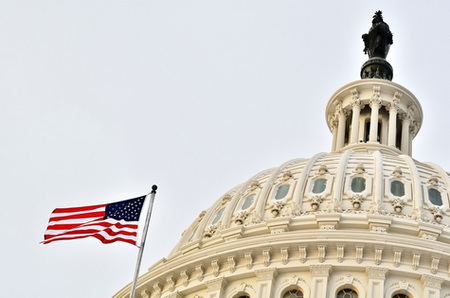
The House of Representatives yesterday overwhelmingly passed legislation (417-1) intended to ease restrictions on Paycheck Protection Program (PPP) loans to help small businesses keep workers on payroll with benefits during the coronavirus outbreak. (The Hill, May 28)
- The House’s Paycheck Protection Program Flexibility Act (H.R. 7010) would allow small businesses to apply for loans and rehire laid-off or furloughed workers through December 31, 2020 – a six month extension to the original June 30 “covered period” deadline enacted as part of the Coronavirus Aid, Relief and Economic Security (CARES) Act in March. (Roundtable Weekly, March 27).
- H.R. 7010 would make other changes that offer greater flexibility for PPP-eligible businesses, including:
- Extending the loan forgiveness period from eight weeks to 24 weeks after origination;
- Extending the PPP re-payment period to five years, for small businesses that do not receive loan forgiveness;
- Allowing PPP loan recipients to take full advantage of deferral of employment taxes through the end of 2020; and
- Allowing small businesses to receive forgiveness for up to 40% of PPP loan amounts used for rent and other non-payroll expenses.
- The Roundtable joined a broad coalition of organizations supporting the flexibility bill – as originally introduced – that would have given small businesses greater discretion to decide how to best apportion PPP proceeds to help pay rent obligations and other ordinary operating expenses. (Roundtable Weekly, May 22)
- The original bill would have completely eliminated the so-called “75-25 Rule.” The rule’s name derives from a Small Business Administration (SBA) regulation that currently requires a qualifying business to use at least 75% of PPP proceeds for payroll and benefits, and no more than 25% for rent, mortgage interest, and utility payments. (See RER’s “8-Point Plan to Reform the PPP”)
- H.R. 7010 as passed by the House yesterday defaulted instead to a “60-40 Rule.” According to Politico, “Democrats scaled back [the] initial version of the bill to address complaints from labor leaders that it would have given businesses less incentive to hire back workers.” (POLITICO, May 28)
- With the Senate scheduled to come back in session on Monday, it could vote next week on its own bipartisan legislation to modify the PPP, the Paycheck Protection Program Extension Act (S. 3833). Like H.R. 7010, the Senate version would increase the PPP forgiveness period – but only by 16 weeks. The Senate bill would not address changes to the “75-25 Rule” at all. (Journal of Accountancy, May 25)
- A bipartisan group of Senators led by John Cornyn (R-TX), meanwhile, is on record to move the “75-25 Rule” to a “50-50 Rule” where up to half of PPP loan proceeds could be used by a business to pay rent and other non-payroll fixed expenses. (Cornyn press release, May 6)
- Treasury Secretary Steven Mnuchin has expressed the Administration’s opposition to changing the “75-25 Rule.” “Let me just remind people it’s called the Paycheck Protection Program, it’s not called the overhead protection program,” Mnuchin said in a May 21 interview for The Hill. “It was designed that you got eight weeks of payroll plus 25 percent for overhead, which we thought was a reasonable amount.”
House Majority Leader Steny Hoyer (D-MD) claimed earlier this week that House and Senate negotiators are nearing agreement on PPP reforms. (Bloomberg, May 26). A recent “tracker tool” released by the American Action Forum charts the allocation of PPP loans since the program’s inception in March.
# # #
